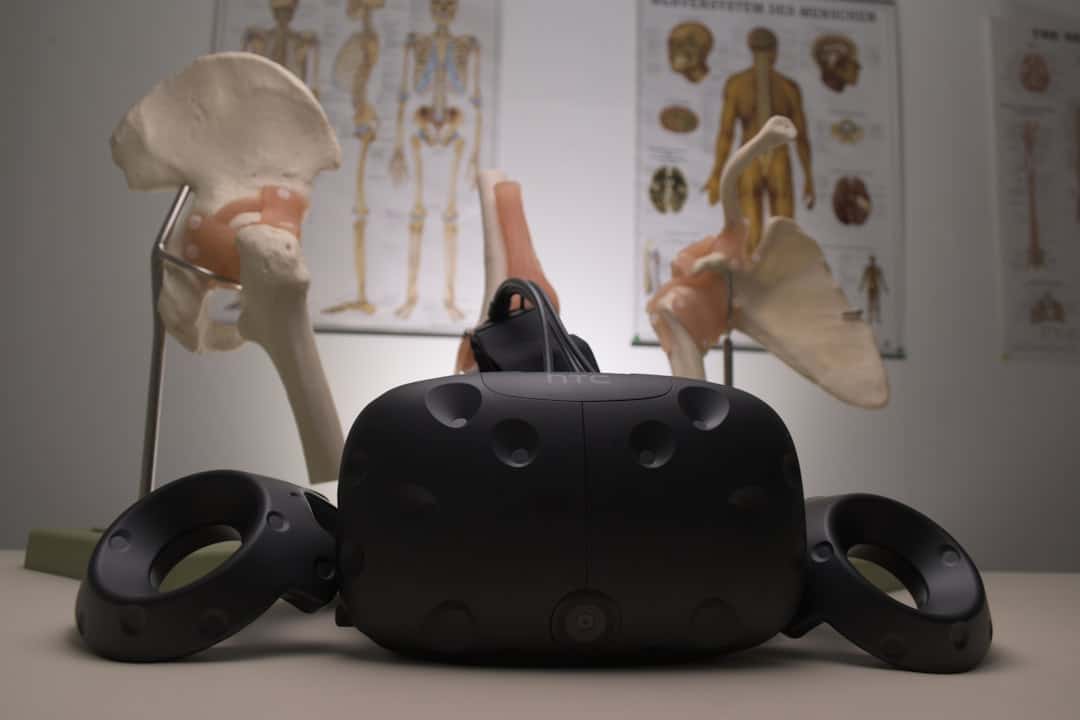The Metaverse is a concept of a shared virtual space that combines elements of augmented reality and persistent virtual environments. This idea gained prominence through science fiction works like Neal Stephenson’s novel “Snow Crash” and the film “The Matrix.” The Metaverse is envisioned as an immersive digital universe accessed via the internet, where users interact through avatars in real-time. This digital realm allows for a wide range of activities, including work, entertainment, socializing, and commerce.
In recent years, the Metaverse has attracted significant attention due to advancements in virtual reality (VR) and augmented reality (AR) technologies. Major tech companies such as Meta (formerly Facebook), Microsoft, and Google have invested heavily in developing the necessary infrastructure and technology to support the Metaverse’s creation. The potential applications of the Metaverse span various sectors, including gaming, education, healthcare, and e-commerce.
As technology continues to progress, the line between physical and digital realities is becoming increasingly blurred. This convergence is driving the Metaverse concept towards mainstream adoption, with the potential to revolutionize how people interact, work, and experience digital content in the future.
Key Takeaways
- The Metaverse is a collective virtual shared space, created by the convergence of virtually enhanced physical reality and physically persistent virtual reality.
- Decentraland is a virtual world built on blockchain technology, allowing users to buy, sell, and develop virtual real estate using cryptocurrency.
- Roblox is a social platform and game creation system that allows users to design their own games and experiences, as well as interact with others in a virtual environment.
- Navigating the virtual economy in the Metaverse involves understanding and utilizing digital currencies, virtual assets, and decentralized finance (DeFi) platforms.
- Virtual real estate in Decentraland has the potential for significant value appreciation, as well as opportunities for development and monetization through virtual businesses and experiences.
- Creating and monetizing content in Roblox can be achieved through game development, virtual item sales, and virtual events, offering opportunities for user-generated income.
- The future of the Metaverse presents opportunities for innovation, collaboration, and new forms of entertainment, but also challenges related to privacy, security, and digital ownership rights.
Decentraland: A Virtual World Built on Blockchain
Empowering User-Generated Content
One of the key features of Decentraland is its emphasis on user-generated content and experiences. Users can create and monetize their own virtual spaces, known as LAND, using Decentraland’s SDK (Software Development Kit) and scripting language. This allows for a wide range of creative possibilities, from art installations and interactive experiences to games and social hubs.
Immersive Experiences and Events
Additionally, Decentraland hosts various events and activities, such as conferences, art exhibitions, and live music performances, further enriching the virtual experience for its users. Decentraland’s use of blockchain technology ensures that digital assets within the platform are scarce, provably rare, and immutable. This means that users have true ownership over their virtual real estate and other digital assets, with the ability to transfer, trade, or sell them as they see fit.
A Decentralized and Autonomous Platform
The platform’s decentralized nature also means that it is not controlled by any single entity, providing a level of autonomy and security for its users. As interest in virtual worlds and digital ownership continues to grow, Decentraland stands at the forefront of this movement, offering a unique and innovative platform for users to explore and engage with the Metaverse.
Roblox: A Social Platform and Game Creation System

Roblox is a massively popular online platform and game creation system that allows users to design their own games and experiences using the company’s proprietary game development tool, Roblox Studio. The platform hosts millions of user-created games across a wide range of genres, from action-adventure and role-playing games to simulations and virtual hangout spaces. Users can also socialize with others, customize their avatars, and participate in virtual events and activities within the Roblox community.
One of the key aspects of Roblox is its emphasis on user-generated content and creativity. The platform provides users with intuitive tools and resources to create their own games and experiences without requiring extensive programming knowledge. This has led to a vibrant ecosystem of user-generated content, with developers of all ages creating and sharing their creations with millions of players worldwide.
Additionally, Roblox provides a marketplace where developers can monetize their games through virtual currency called Robux, which can be exchanged for real money. Roblox’s social features also play a significant role in its appeal. Users can connect with friends, join groups, and participate in virtual events within the platform.
This social aspect has made Roblox a popular destination for socializing and hanging out with friends in a virtual environment. The platform also hosts various events and experiences, such as concerts and virtual meetups with celebrities, further enhancing its social appeal. As one of the leading platforms for user-generated content and social interaction in the Metaverse, Roblox has positioned itself as a key player in shaping the future of virtual experiences.
Its emphasis on creativity, community, and social interaction has made it a beloved platform for millions of users around the world.
| Metrics | Data |
|---|---|
| Virtual Economy Size | Estimated value of 50 billion |
| Virtual Goods Market | Projected to reach 200 billion by 2025 |
| Virtual Currency Exchange Rate | 1 virtual currency = 0.01 USD |
| Virtual Real Estate Prices | Ranging from 10,000 to 1 million |
The virtual economy within the Metaverse encompasses a wide range of activities and transactions, including buying and selling virtual goods, trading digital assets, participating in virtual events, and engaging in virtual commerce. As more people spend time in virtual worlds like Decentraland and Roblox, the virtual economy has become increasingly complex and diverse. Users can earn income through various means within these platforms, such as creating and selling digital assets, providing services to other users, or monetizing their own virtual experiences.
One of the key drivers of the virtual economy is the concept of digital ownership. In platforms like Decentraland, users can buy, sell, and trade virtual real estate using cryptocurrency. This has led to a thriving market for virtual land within the platform, with some parcels of land selling for significant sums of money.
Additionally, users can create and sell digital assets such as art pieces, wearables for avatars, or custom game items within platforms like Roblox, further contributing to the virtual economy. Another important aspect of the virtual economy is the emergence of virtual currencies and tokens. Platforms like Decentraland have their native cryptocurrency (MANA), which is used for various transactions within the platform.
Similarly, Roblox has its virtual currency (Robux), which users can earn through various activities within the platform. These virtual currencies can be used to purchase digital goods or services within their respective platforms or exchanged for real-world currency through various marketplaces. As the virtual economy continues to evolve within the Metaverse, it presents both opportunities and challenges for users and businesses alike.
Navigating this new frontier requires an understanding of digital ownership, blockchain technology, virtual currencies, and user-generated content. As more people engage with the virtual economy, it is likely to become an increasingly important aspect of our digital lives.
The Potential of Virtual Real Estate in Decentraland
Virtual real estate in Decentraland represents a unique opportunity for users to own and develop digital land within a decentralized virtual world. The platform’s use of blockchain technology ensures that each parcel of land is provably scarce and immutable, providing users with true ownership over their digital assets. This has led to a thriving market for virtual real estate within Decentraland, with some parcels selling for significant sums of money.
The potential of virtual real estate in Decentraland extends beyond mere ownership. Users can develop their land using Decentraland’s SDK (Software Development Kit) to create interactive experiences, art installations, games, or social hubs. This has led to a diverse range of creative developments within the platform, from virtual art galleries to live music venues.
Additionally, users can monetize their land by hosting events or charging admission fees for access to their experiences. The concept of virtual real estate in Decentraland has also attracted interest from businesses and brands looking to establish a presence within the platform. Companies can purchase land to create branded experiences or marketing campaigns within Decentraland, tapping into a new form of digital engagement with consumers.
This has led to partnerships between Decentraland and various businesses seeking to explore the potential of virtual real estate as a marketing and engagement tool. As interest in virtual worlds continues to grow, the potential of virtual real estate in Decentraland remains an exciting frontier within the Metaverse. The platform’s decentralized nature and emphasis on user-generated content provide unique opportunities for individuals and businesses to explore new forms of creativity, commerce, and engagement within a digital environment.
Creating and Monetizing Content in Roblox

Creating Games Across Various Genres
Developers can create games across various genres such as action-adventure, role-playing games, simulations, or social hangout spaces.
Monetizing Content Through Robux
Additionally, Roblox provides a marketplace where developers can monetize their games through virtual currency called Robux. The ability to create and monetize content within Roblox has led to a thriving community of developers who have found success in creating popular games within the platform. Some developers have even turned their passion for game development into full-fledged careers by earning substantial income through their creations on Roblox.
Expanding Creative Opportunities
This has created new opportunities for individuals looking to pursue game development as a profession without requiring traditional industry connections or resources. In addition to game development, users can also create other forms of content within Roblox such as clothing items for avatars or custom game items that can be sold within the platform’s marketplace. This has led to a diverse range of creative opportunities for individuals looking to express themselves through digital creation while also earning income from their efforts.
The Future of the Metaverse: Opportunities and Challenges
The future of the Metaverse holds vast opportunities for individuals and businesses across various industries. As technology continues to advance, we are likely to see new forms of digital engagement emerge within virtual worlds like Decentraland and Roblox. This presents opportunities for businesses to explore new forms of marketing, consumer engagement, and commerce within these platforms.
Additionally, as more people spend time in virtual worlds like Decentraland and Roblox, we are likely to see new forms of digital entrepreneurship emerge within these platforms. Individuals can pursue careers in game development or content creation while also exploring new forms of digital commerce within these virtual environments. However, as with any emerging technology or concept, there are also challenges that come with navigating the Metaverse.
Issues such as digital ownership rights, security concerns within virtual environments, or regulatory considerations are likely to become increasingly important as more people engage with these platforms. Overall, the future of the Metaverse holds great promise for individuals looking to explore new forms of creativity, commerce, and community within digital environments. As technology continues to advance and our understanding of virtual worlds evolves, we are likely to see new opportunities emerge within this exciting frontier.
If you’re interested in learning more about the potential impact of the metaverse on healthcare and wellness, be sure to check out this article on Metaversum. It explores how virtual reality and augmented reality technologies could revolutionize the healthcare industry, offering new opportunities for patient care and wellness initiatives.
FAQs
What are some examples of the metaverse?
Some examples of the metaverse include virtual reality platforms like Second Life, social gaming platforms like Roblox and Fortnite, and virtual reality chat platforms like VRChat.
How are companies using the metaverse?
Companies are using the metaverse for virtual events, virtual product demonstrations, virtual meetings, and virtual shopping experiences. Some companies are also creating virtual offices and workspaces within the metaverse.
What are some potential future uses of the metaverse?
Potential future uses of the metaverse include virtual education and training, virtual healthcare services, virtual tourism experiences, and virtual real estate and property showings.
What are the benefits of the metaverse?
The benefits of the metaverse include the ability to connect with others in a virtual space, the potential for new forms of entertainment and social interaction, and the opportunity for businesses to create innovative virtual experiences for their customers.
What are the challenges of the metaverse?
Challenges of the metaverse include issues related to privacy and security, concerns about addiction and overuse of virtual environments, and the potential for creating virtual environments that perpetuate inequality and discrimination.











Leave a Reply